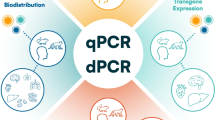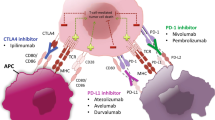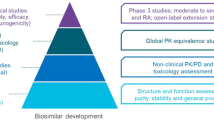Abstract
Objective
The aim of this study was to explore the tolerance, variability, and pharmacokinetics (PK) of bevacizumab biosimilars (MIL60, BAT1706, IBI305) in Chinese healthy male subjects.
Methods
This randomized, double-blind, two-arm, parallel studies included three separate investigations, which were conducted by three sponsors to investigate the bioequivalence of bevacizumab biosimilars (MIL60, BAT1706, IBI305) with that of bevacizumab-EU as a reference drug. Subjects received a single-dose of 1 or 3 mg/kg of the bevacizumab biosimilars or bevacizumab-EU and were followed up for 70–99 days. Serum concentrations of bevacizumab, antidrug antibody (ADA), and neutralizing antibody (NAb) were measured using electrochemiluminescence. In addition, the PK parameters were determined using non-compartmental methods. The safety assessments included adverse events, hematology tests, and biochemistry tests.
Results
The three bevacizumab biosimilars exhibited similar PK properties to that of bevacizumab-EU. Bevacizumab demonstrated linear PK properties and a concentration-dependent disposition. When comparing the three biosimilars with bevacizumab-EU, the 90% CIs of the ratios for Cmax, AUC0–t, and AUC0–∞ were within 80–125%. The inter-CV ranged from 12.6 to 23.3%. Three subjects in the biosimilar groups and bevacizumab-EU were positive for the ADA and negative for the NAb. Treatment-related mild or moderate adverse events were reported in 56–80 and 36–80% of subjects in the biosimilar and bevacizumab treatment arms, respectively.
Conclusions
The bevacizumab biosimilars exhibit similar PK characteristics to that of the reference product bevacizumab-EU. The inter-CV is moderate and less than 25% in all cases. The safety profile was similar among bevacizumab biosimilars and bevacizumab-EU with significant adverse events.




Similar content being viewed by others
References
European Medicines Agency (2014) Guideline on similar biological medicinal products. http://www.ema.europa.eu/docs/en_GB/document_library/Scientific_guideline/2014/10/WC500176768.pdf. Accessed 25 Aug 2015
US Food and Drug Administration (2015) Scientific considerations in demonstrating biosimilarity to a reference product. http://www.fda.gov/downloads/drugs/guidancecomplianceregulatoryinformation/guidances/ucm291128.pdf. Accessed 1 May 2015
World Health Organization, Expert Committee on Biological Standardization (2009) Guidelines on evaluation of similar biotherapeutic products (SBPs). http://www.who.int/biologicals/areas/biological_therapeutics/BIOTHERAPEUTICS_FOR_WEB_22APRIL2010.pdf. Accessed 4 Feb 2015
Genentech Inc (2015) Avastin® (bevacizumab) prescribing information. http://www.gene.com/download/pdf/avastin_prescribing.pdf. Accessed 20 May 2015
Kong DH, Kim MR, Jang JH, Na HJ, Lee S (2017) A review of anti-angiogenic targets for monoclonal antibody cancer therapy. Int J Mol Sci 18(8):E1786
Loizzi V, Del Vecchio V, Gargano G, De Liso M, Kardashi A, Naglieri E, Resta L, Cicinelli E, Cormio G (2017) Biological pathways involved in tumor angiogenesis and bevacizumab based anti-angiogenic therapy with special references to ovarian cancer. Int J Mol Sci 18(9):E1967
Wang J, Chen J, Guo Y, Wang B, Chu H (2017) Strategies targeting angiogenesis in advanced non-small cell lung cancer. Oncotarget 8(32):53854–53872
Yu J, Zhang Y, Leung LH, Liu L, Yang F, Yao X (2016) Efficacy and safety of angiogenesis inhibitors in advanced gastric cancer: a systematic review and meta-analysis. J Hematol Oncol 9(1):111
Coleman RL, Brady MF, Herzog TJ, Sabbatini P, Armstrong DK, Walker JL, Kim BG, Fujiwara K, Tewari KS, O’Malley DM, Davidson SA, Rubin SC, DiSilvestro P, Basen-Engquist K, Huang H, Chan JK, Spirtos NM, Ashfaq R, Mannel R (2017) Bevacizumab and paclitaxel-carboplatin chemotherapy and secondary cytoreduction in recurrent, platinum-sensitive ovarian cancer (NRG Oncology/Gynecologic Oncology Group study GOG-0213): a multicentre, open-label, randomised, phase 3 trial. Lancet Oncol 18(6):779–791
CHINA Food and Drug Administration (2015) Scientific considerations in demonstrating biosimilarity to a reference product.http://www.sda.gov.cn/WS01/CL1616/115104.html. Accessed 4 Mar 2015
Socinski MA, Curigliano G, Jacobs I, Gumbiner B, MacDonald J, Thomas D (2015) Clinical considerations for the development of biosimilars in oncology. MAbs 7(2):286–293
Tajima N, Martinez A, Kobayashi F, He L, Dewland P (2017) A phase 1 study comparing the proposed biosimilar BS-503a with bevacizumab in healthy malevolunteers. Pharmacol Res Perspect 5(2):e00286
Knight B, Rassam D, Liao S, Ewesuedo R (2016) A phase I pharmacokinetics study comparing PF-06439535 (a potential biosimilar) with bevacizumab in healthy male volunteers. Cancer Chemother Pharmacol 77(4):839–846
Hettema W, Wynne C, Lang B, Altendorfer M, Czeloth N, Lohmann R, Athalye S, Schliephake D (2017) A randomized, single-blind, Phase I trial (INVICTAN-1) assessing the bioequivalence and safety of BI 695502, a bevacizumab biosimilar candidate, in healthy subjects.Expert. Opin Investig Drugs 26(8):889–896
CHINA Food and Drug Administration (2016) Scientific considerations in demonstrating bioequivalence to a reference product. http://www.sda.gov.cn/WS01/CL1751/147583.html. Accessed 18 Mar 2016
Karalis V, Symillides M, Macheras P (2012) Bioequivalence of highly variable drugs: a comparison of the newly proposed regulatory approaches by FDA and EMA. Pharm Res 29(4):1066–1077
Davit BM, Conner DP, Fabian-Fritsch B, Haidar SH, Jiang X, Patel DT, Seo PR, Suh K, Thompson CL, Yu LX (2008) Highly variable drugs: observations from bioequivalence data submitted to the FDA for new generic drug applications. AAPS J 10(1):148–156
Liu Q, Davit BM, Cherstniakova SA, Dandamudi S, Walters JF, Lee CH, Raines KW, Ren K, Williamson LN, Conner DP (2012) Common deficiencies with bioequivalence submissions in abbreviated new drug applications assessed by FDA. AAPS J 14(1):19–22
Hammami MM, De Padua SJS, Hussein R, Al Gaai E, Khodr NA, Al-Swayeh R, Alvi SN, Binhashim N (2017) Generic-reference and generic-generic bioequivalence of forty-two, randomly-selected, on-market generic products of fourteen immediate-release oral drugs. BMC Pharmacol Toxicol 18(1):78
Al-Sabbagh A, Olech E, McClellan JE, Kirchhoff CF (2016) Development of biosimilars. Semin Arthritis Rheum 45(5 Suppl):S11–S18
Cai XY, Thomas J, Cullen C, Gouty D (2012) Challenges of developing and validating immunogenicity assays to support comparability studies for biosimilar drug development. Bioanalysis 4(17):2169–2177
Liu PM, Zou L, Sadhu C, Shen WD, Nock S (2015) Comparative immunogenicity assessment: a critical consideration for biosimilar development. Bioanalysis 7(3):373–381
Li E, Subramanian J, Anderson S, Thomas D, McKinley J, Jacobs IA (2015) Development of biosimilars in an era of oncologic drug shortages. Drug Des Devel Ther 9:3247–3255
Acknowledgements
This work was supported by the National Science Foundation of China (Grant nos. 81602897, 81300313, 30872174, 2017ZX09304004, and 2017ZX09101001-002-041).
Author information
Authors and Affiliations
Corresponding author
Ethics declarations
Conflict of interest
The authors declare no conflict of interests.
Rights and permissions
About this article
Cite this article
Zhang, H., Li, Q., Zhu, X. et al. Tolerance, variability, and pharmacokinetics of bevacizumab biosimilars in Chinese healthy male subjects. Cancer Chemother Pharmacol 82, 615–623 (2018). https://doi.org/10.1007/s00280-018-3645-1
Received:
Accepted:
Published:
Issue Date:
DOI: https://doi.org/10.1007/s00280-018-3645-1




